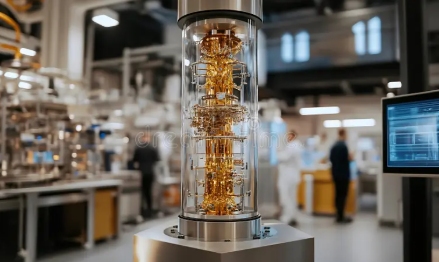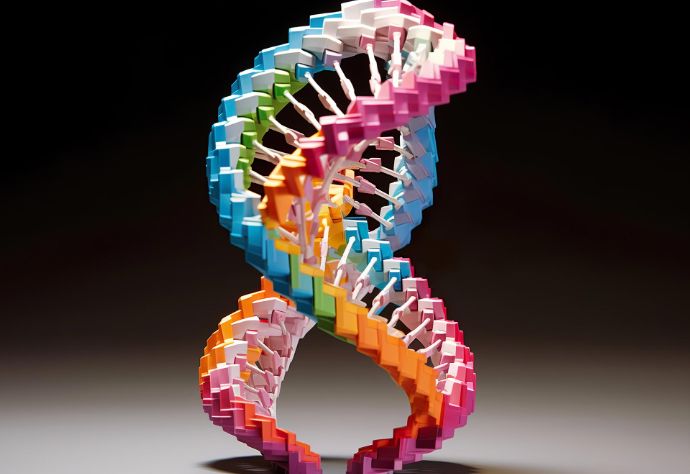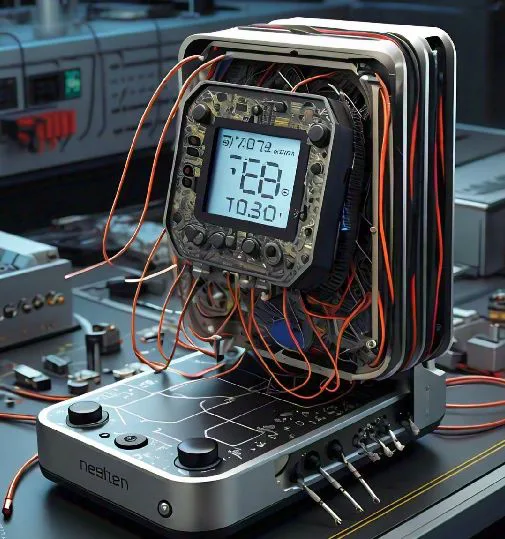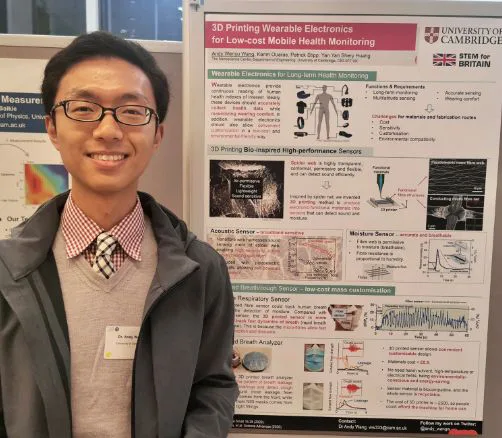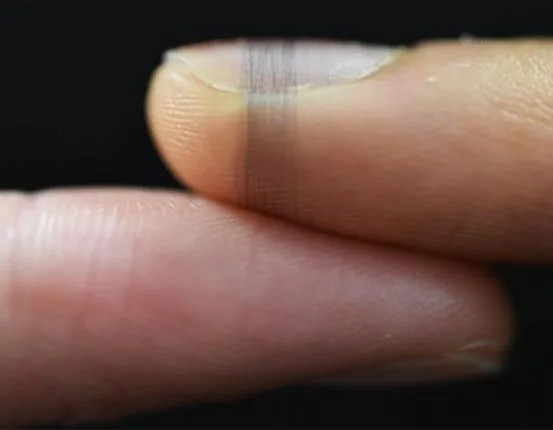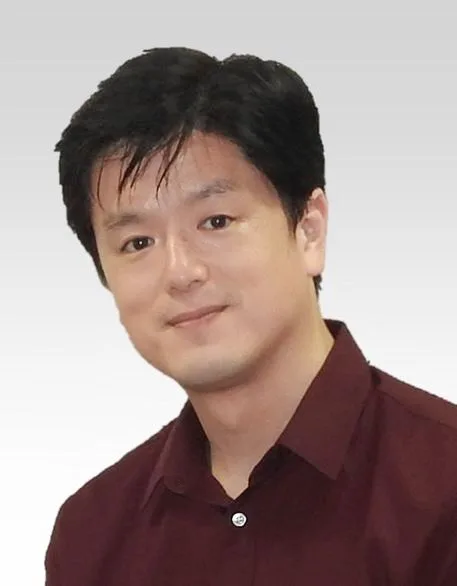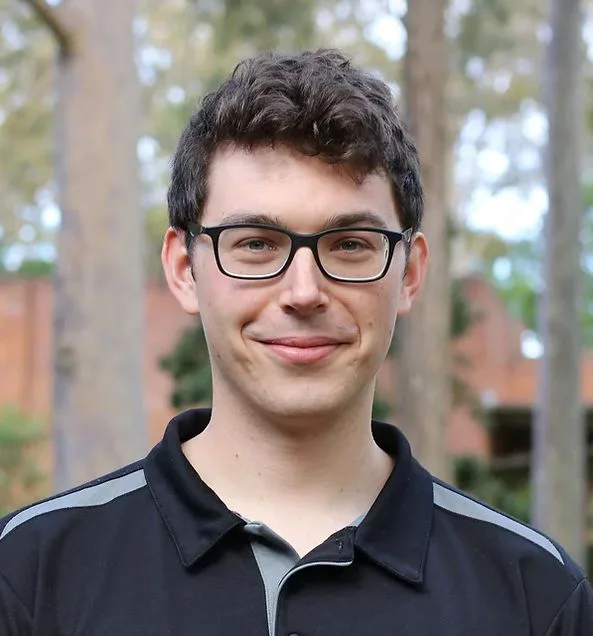Wireless communication seems easy because it happens without us noticing, but inside, devices have to carefully balance sending data quickly, keeping the signal clear, and using as little power as possible. When devices send signals through the air, the signals aren’t always perfect, and using more power to make the signals stronger costs more battery life. That’s why a new transmitter chip from MIT and a few partner universities is turning heads.
Read MoreTag: nanotechnology
Interview: Jerry Lu, Phd student at the University of Manitoba, Canada
What if you could send a pulse of light into a device, and have it appeared ‘faster’ or ‘slower’ dependingon which direction it came from?
Read MoreMaking Terahertz Waves Work on a Chip, Without the Bulk
Researchers at MIT have built a small chip that can generate terahertz waves more effectively and more affordably than what’s currently out there. That’s huge, ‘cause terahertz waves sit between radio and infrared on the electromagnetic spectrum, so they can carry more data than radio waves and see through more materials than infrared light. This makes them a promising candidate for faster wireless communication, sharper medical imaging, better security scanners, and smarter environmental monitoring.
Read MoreSmarter Connections: A Step Closer to Practical Quantum Machines
Have you ever watched two kids on swings, tied together by a spring? When one swings, the other starts moving too. That’s how scientists often imagine the relationship between light and matter at the quantum level. They call this a coupling , a way for two systems to influence each other.
Read MoreULVAC and IBM Quantum Team Up to Revolutionize Quantum Computing Cooling
Quantum computing is one of the most promising technological frontiers, but it comes with a major challenge, which is, maintaining the extreme cold temperatures that is required for qubits to function. Today’s quantum computers rely on dilution refrigerators, complex and highly specialized cooling systems that keep qubits operating near absolute zero. However, these systems are expensive, tough to maintain and don’t scale easily.
Read MorePlenty of Room at the Bottom: Thinking Small, Dreaming Big
This document is a written version of a speech given by Richard P. Feynman in 1959, huge shout out to Michigan State University for putting this over internet. Feynman talked about the exciting potential of working with tiny things. He believed that there is a lot we can discover in this area, even though it isn’t directly about basic physics. He was sure that looking into this area could help us grasp difficult subjects more easily and could have many useful applications. Below are some of the ideas covered by…
Read MoreUnravelling Superionic Materials: A Breakthrough for Next-Gen Rechargeable Batteries
Researchers at Duke University have discovered the intricate molecular details of a material that might just be the key to next-generation rechargeable batteries. It’s called the superionic material. The compound displays both solid and liquid properties. How? It retains its solid structure, however, the ions within it move as freely as they would in a liquid.
Read MoreDNA Origami: Tiny Toolkit for Big Innovations
Super interesting research about DNA has lately surfaced. The blue print of life is not only a research material for biology but now, it is also utilized for building tiny robots! Doesn’t it sound futuristic? With a groundbreaking technique called DNA Origami, scientists at The University of Sidney are turning this sci-fi feat into a reality.
Read MoreInterview: Dr. Sukriti Hans, Material Scientist at LIST, Luxembourg
In a rapidly evolving world where technological advancements meet the growing demand for sustainability, Dr. Sukriti Hans stands at the forefront of materials research. Currently a Junior R&T Associate at the Luxembourg Institute of Science and Technology (LIST), Dr. Hans is playing a pivotal role in developing high-resolution characterization methods that can redefine the future of materials science.
Read MoreNeutron Innovation: Precise Temperature Measurement for Electronics
We are constantly surrounded by electronics. From LEDs to batteries, these electronics have become part of our lives. And so, more advanced and intricate components are needed to make them more efficient and reliable. However, as these components become increasingly sophisticated, getting reliable temperature measurements of specific elements inside an object can be a challenge.
Read MoreInterview: Dr. Andy Wang, a Bioelectronics Scientist at the University of Cambridge, England
Meet Dr. Andy Wang, PhD, a leading researcher in the Biointerface Group at the University of Cambridge, under the esteemed Prof. Shery Huang. Dr. Wang brings a wealth of expertise to the field, having earned a Bachelor’s degree in Mechanical Engineering from the prestigious Tsinghua University in 2016, followed by a PhD in the same field from the world-renowned Cambridge University Engineering Department in 2021.
Read MoreElectronic Spider Silk: A Versatile Solution for Bioelectronics
Super-thin and flexible electronics are here to stay. This tech will not only create but it will also revolutionize the use of gadgets. Since, it leads to unlimited possibilities for innovative and practical applications. Some of the them include but not limited to – wearable tech, portability, healthcare applications, space probes etc.
Read MoreInterview: Dr. Shoji Takeuchi, a Biohybrid Systems Scientist at The University of Tokyo, Japan
Welcome to our chat with Dr. Shoji Takeuchi, a Biohybrid Systems Scientist rocking it at The University of Tokyo. Dr. Takeuchi’s research covers a bunch of cool stuff like Biohybrid Systems, MEMS, Microfluidics, Tissue Engineering, and Artificial Cell Membrane. Basically, he’s all about blending biology and tech to create awesome bio-hybrid systems.
Read MoreInnovative SiPh Chip: Nanoscale Light Computing Breakthrough
Imagine a world where AI computations are not bound by the limitations of traditional power sources, that is, electricity but by the power of light waves. This is precisely the vision that researchers at the University of Pennsylvania have brought to life with their innovative chip design. This innovation will not only enable the chip to fast-track the processing speed of computers but it will also lessen their energy consumption.
Read MoreInterview: Dr. Matthew Bergin, an Experimental Physicist at The University of Newcastle, Australia
I’m thrilled to introduce Dr. Matthew Bergin, a rising star in the world of Organic Electronics research. Armed with a Master of Science degree in Natural Sciences and a Ph.D. in Physics from the prestigious University of Cambridge, Dr. Bergin is making waves with his groundbreaking work at the Centre for Organic Electronics (COE). Dr. Bergin went deep into studying how things work in scanning helium microscopy. He was in charge of creating a better electron ionization mass spectrometer during his Ph.D. research. It’s like he’s breaking new ground in…
Read More




